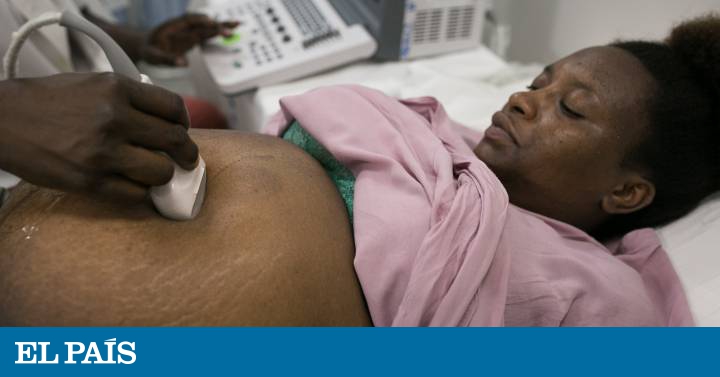They wanted to clarify what pregnant women die of, what kills them during childbirth and immediately after it. Only in this way could it be known if it was possible to save them. More than 300,000 die each year, 99% in poor countries where, in addition, it is more difficult to know the causes. For this reason, a group of experts started a line of research in Mozambique in 2003. Ten years later, they repeated the experience and the results just published in Lancet Global Health reveal that in almost 40% of the deaths there was a major clinical diagnostic error and that, with proper care, many could have been avoided.
MORE INFORMATION
- The war against maternal and child deaths must be won
- Everything that kills the youngest children
- Caesarean death is 100 times more frequent in developing countries
"The best way to solve the causes of maternal mortality was by doing full autopsies and at Maputo Central Hospital they are done routinely," explains Clara Menéndez, director of the Initiative for Maternal, Child and Reproductive Health at ISGlobal - center promoted by the laCaixa Foundation—, and first author of the study. Between November 2013 and March 2015, 136 mothers died in this health center, 91 were investigated by a team of pathologists who determined that 45% died from obstetric causes and 56% from other indirect complications, most of them infections.
Researchers from the team led by Hospital Clinic pathologist and ISGlobal researcher Jaume Ordi compared their results with clinical diagnoses and found "discrepancies," they write in their study. In the 2003 work, in more than 60% of cases. "Ten years later we verified with frustration that things had not changed much, because the error rate was 40%," says Menéndez by phone. "Many who came in with seizures were treated as eclampsia [the most severe stage of hypertensive disease of pregnancy] and were actually other infections, malaria, HIV, meningitis ... If the diagnosis had been correct, they could have been save, "he says.
"The increasing number of pregnant women giving birth in health facilities in low and middle income countries, which has gone from 58% in 1990 to 78.3% in 2016, did not result in the expected reduction in maternal mortality" , the researchers note in their publication. The causes of so many thousands of women still dying in the process of giving birth are diverse, including delays in the decision to seek care or the delay in reaching a health center. "It's not just about getting more to the hospitals, but about taking good care of you," adds Menéndez.
Nothing happens to recognize mistakes. In medicine it is how you learn
Clara Menéndez, ISGlobal
That this level of error happens in a hospital like Maputo, with trained professionals and diagnostic tools, in Menéndez's opinion, is due to the fact that insufficient attention is paid to knowing the true causes of death and using that information to improve the Attention. "It is not just a question that these countries are poor; with few means you can change, but you have to be aware of the problem," insists the researcher.
The results, Menéndez considers, can be extrapolated to other countries. Although he recognizes that this type of study is not possible in others due to the lack of pathologists, he believes that knowing the errors is the first step to save the lives of many of these women. But recognizing failures is very difficult and making them known is not always politically convenient, the expert abounds. But only in this way, she repeats, will it be possible to take advantage of "the enormous margin for improvement to avoid maternal deaths, because many are avoidable with few financial means."
"What discourages is that this information is not collected, that it reaches the person who has to reach it and the correct decisions are made." And it ends: "Nothing happens to recognize mistakes. In medicine it is how you learn."
You can follow PLANETA FUTURO on Twitter and Facebook and Instagram, and subscribe here to our newsletter.

